Find Help
More Items From Ergsy search
-
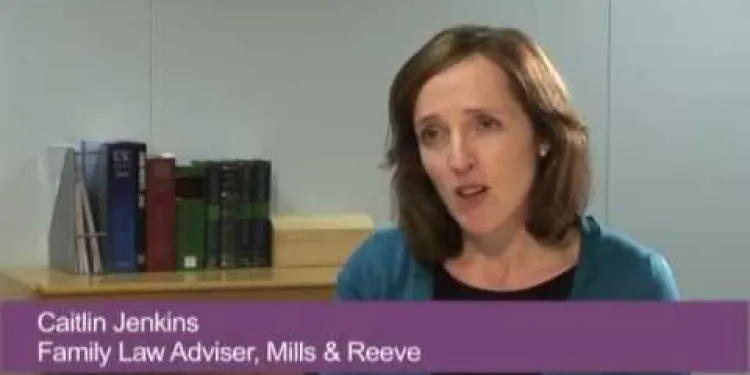
Divorce UK: What happens with the money in a divorce?
Relevance: 100%
-

I'm Getting a Divorce | Tips From a Divorce Lawyer
Relevance: 62%
-

A Guide to the Divorce Process
Relevance: 59%
-

Divorce UK (England and Wales) | UK Divorce Process and Overview Explained PART 1 | BlackBeltBarrister
Relevance: 58%
-
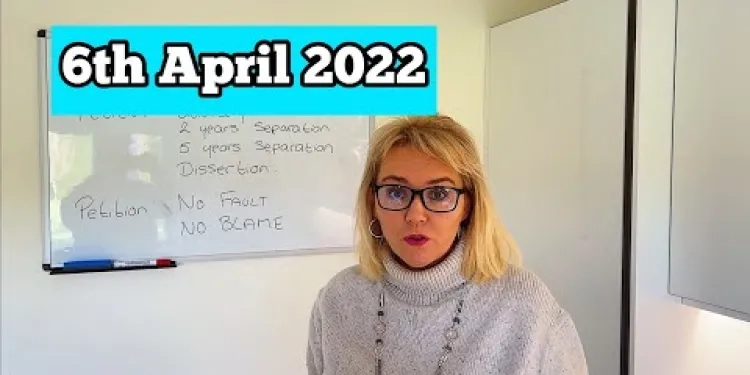
NO FAULT DIVORCE (What is there to know)
Relevance: 57%
-

Understanding Your Rights in Divorce Proceedings
Relevance: 54%
-
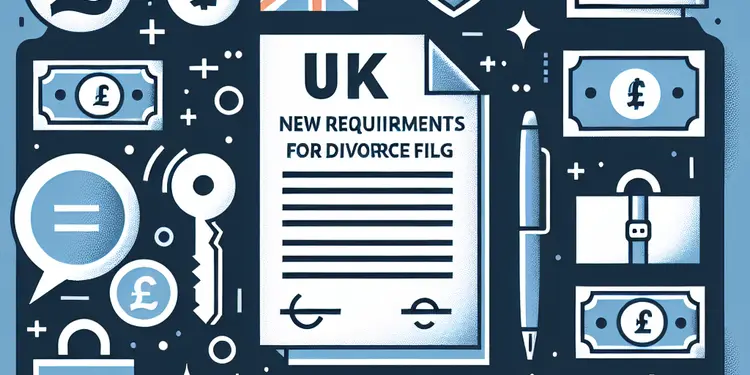
Are there any new requirements for divorce filings in 2026?
Relevance: 53%
-

Understanding Your Rights During Divorce Proceedings in the UK
Relevance: 52%
-

Can firefighter pension benefits be divided in a divorce?
Relevance: 51%
-

Divorce Step By Step - Form E - Capital
Relevance: 50%
-

Ultimate Guide to Financial Disclosure on Divorce in the UK
Relevance: 49%
-

The 4 Steps to Agree a Financial Settlement on Divorce UK
Relevance: 49%
-

What is money laundering?
Relevance: 48%
-

Divorce - How To Rebuild Your Life After Losing Everything
Relevance: 46%
-
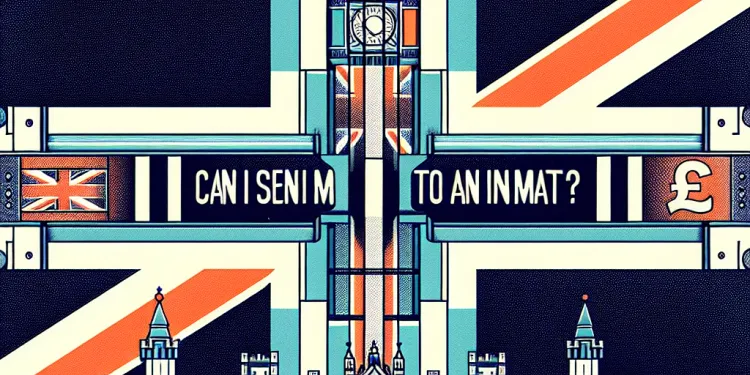
Can I send money to an inmate?
Relevance: 45%
-

Do I need a lawyer to claim money back?
Relevance: 40%
-

Are there any fees to claim money back?
Relevance: 39%
-

Can I save money by switching my bank?
Relevance: 39%
-

Can I withdraw money from my ISA any time?
Relevance: 38%
-

Can I save money by switching my bank?
Relevance: 37%
-

Can I use crowdfunding to raise money for funeral expenses?
Relevance: 36%
-
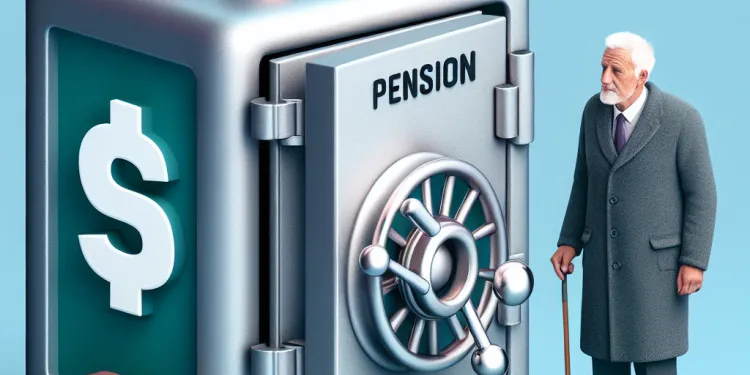
Can pensioners lose all their money if a pension provider fails?
Relevance: 34%
-

How do better interest rates help me save money?
Relevance: 32%
-

How can I claim money back from my water company?
Relevance: 31%
-

Workplace Pension UK | Pros and Cons | GET FREE MONEY FROM YOUR EMPLOYER!
Relevance: 31%
-
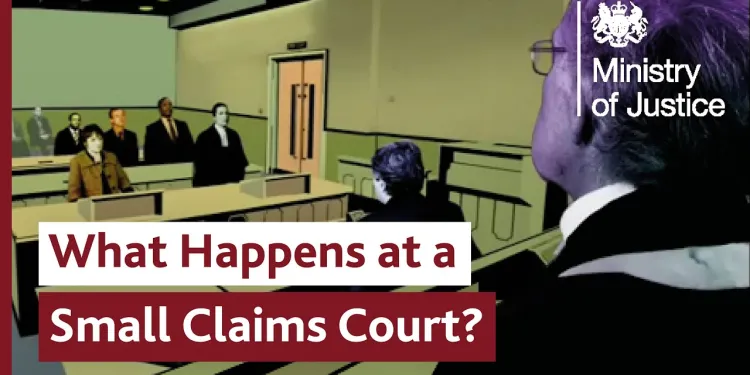
What Happens at Small Claims Court? Making a Court Claim for Money
Relevance: 30%
-

Can I still save money by switching suppliers if the price cap is in place?
Relevance: 30%
-

What is the first step to claim money back from my water company?
Relevance: 27%
-

What should I consider when switching banks to save money?
Relevance: 26%
-

Owed money? - Professional UK Debt Collectors - 1st choice solution
Relevance: 25%
-

RIGHT TO BUY MORTGAGE - LET ME SAVE YOU TIME AND MONEY
Relevance: 25%
-

How much money can I receive from the Sure Start Grant?
Relevance: 25%
-

How much money can I receive from the Sure Start Grant?
Relevance: 25%
-

Navigating Post-Divorce Finances Amidst Economic Challenges
Relevance: 25%
-

Navigating Changes in Family Law Post-Brexit
Relevance: 24%
-

How do online banks protect my money?
Relevance: 23%
-

How much money does the Warm Home Discount provide?
Relevance: 22%
-

Are there any changes to spousal support regulations in 2026?
Relevance: 22%
-
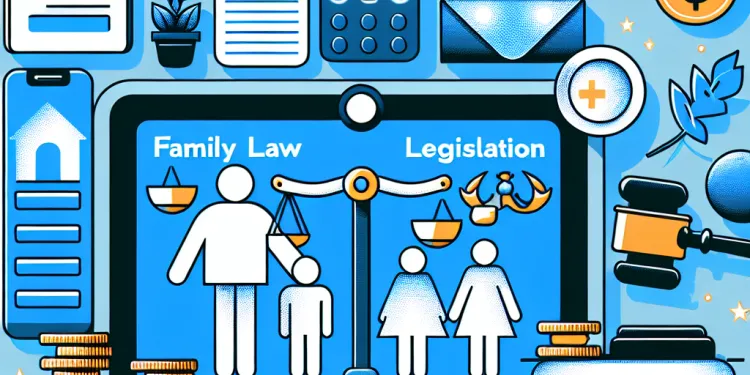
Impacts of Recent Changes to Family Law Legislation
Relevance: 22%
-

Can I claim money back for service disruptions?
Relevance: 21%
Divorce UK: What Happens with the Money?
Divorce can be a challenging and complex process, especially when it comes to dividing finances. In the UK, the distribution of money and assets during a divorce is governed by a set of legal principles designed to ensure fairness for both parties. This guide provides an overview of what happens with the money in a UK divorce.
Understanding Matrimonial Assets
Matrimonial assets are those acquired during the course of the marriage, such as family homes, joint savings, and pensions. These assets are typically divided between both parties. The division is based on an assessment of each party's financial needs, contributions, and circumstances.
Non-Matrimonial Assets
Non-matrimonial assets are those acquired before the marriage or received as gifts or inheritance. Usually, these assets are not divided unless they have been mingled with matrimonial assets or are needed to meet one party’s financial requirements.
Spousal Maintenance
Spousal maintenance, also known as 'spousal support' or 'alimony', may be awarded to one partner. This is typically considered when one party requires financial assistance post-divorce. The duration and amount depend on the length of the marriage, the applicant's needs, and the payer's ability to pay.
Child Maintenance
Child maintenance is a mandatory provision regardless of the financial settlement between the spouses. The non-resident parent is required to contribute to the child’s upbringing based on their income. The Child Maintenance Service (CMS) provides a guideline for such payments.
Pensions
Pensions are significant assets and can be divided during divorce. The options include pension sharing orders, pension offsetting, and pension attachment orders. Each method has different implications and must be carefully considered.
Financial Agreements and Court Orders
Couples can reach a financial agreement through negotiation, mediation, or collaborative law. If an agreement is reached, it should be formalized by a consent order approved by a court. If an agreement cannot be reached, the court will make a financial order based on various factors, including income, future needs, and the welfare of any children involved.
In conclusion, dividing money and assets during a UK divorce can be complex and requires careful consideration of all factors involved. Legal advice is often crucial to ensure a fair and reasonable financial settlement.
Divorce UK: What Happens with the Money?
Divorce means ending a marriage. It can be hard, especially when you split money and things. In the UK, there are rules to make it fair for both people. This guide tells you what happens to money in a UK divorce.
Understanding Matrimonial Assets
Matrimonial assets are things you get while married. This includes family homes, savings, and pensions. These are usually shared between both people. The split depends on what each person needs and what they gave during the marriage.
Non-Matrimonial Assets
Non-matrimonial assets are things you had before getting married or got as gifts or inheritance. These are not usually split unless mixed with other assets or needed for one person’s needs.
Spousal Maintenance
Spousal maintenance means money that one person might need after divorce. This is also called ‘alimony’. The amount and time depend on how long the marriage was, what the person needs, and if the other person can pay.
Child Maintenance
Child maintenance is money for children. The parent who does not live with the child pays this. The amount depends on their income. The Child Maintenance Service helps decide how much should be paid.
Pensions
Pensions are important in divorce. They can be shared in different ways. This needs careful thinking because each way is different.
Financial Agreements and Court Orders
Couples can agree on money by talking. If they agree, they get a legal paper called a consent order. If they cannot agree, the court decides based on money, needs, and what's best for kids.
To end, splitting money and things in divorce can be tough. It is important to get legal help to make sure it's fair.
Frequently Asked Questions
How is money divided in a divorce in the UK?
In the UK, money and assets are divided based on what is considered 'fair' rather than a strict 50/50 split. The court considers factors such as the length of the marriage, each party's financial needs, and contributions made by each spouse.
What happens to the family home in a divorce?
The family home can be sold and the proceeds divided, one party can buy out the other’s share, or one party can continue to live in the home with arrangements for selling at a future date. The decision is based on what is fair and reasonable for both parties.
Do we need to go to court to divide our money and assets?
Not necessarily. Many couples reach an agreement through negotiation or mediation. However, if you cannot agree, the court may need to be involved to make a decision.
Does it matter whose name is on the asset?
In divorce proceedings, all assets acquired during the marriage are generally considered joint assets, regardless of whose name is on the ownership documents.
What is a financial settlement?
A financial settlement is a legally binding agreement that sets out the financial arrangements between divorcing parties, including division of assets, income, pensions, and any ongoing financial commitments.
How are pensions divided in a divorce?
Pensions accumulated during the marriage are considered part of the marital assets and can be divided in several ways, including pension sharing orders, pension offsetting, or earmarking orders.
What if one spouse earned all the income during the marriage?
Courts consider contributions made by both parties, including non-financial contributions like homemaking and childcare. Both financial and non-financial contributions are valued in the settlement process.
Can a prenuptial agreement affect the division of money?
Yes, a prenuptial agreement can influence the division of assets, but it is not automatically legally binding. Courts will consider it, especially if it is fair and both parties had legal advice at the time of signing.
What is spousal maintenance?
Spousal maintenance is financial support paid by one spouse to the other after divorce. It is awarded based on factors like the recipient's financial needs, the period of time needed for them to become financially independent, and the payer’s ability to provide support.
How are debts divided in a divorce?
Debts are considered part of the financial pot and are divided fairly between both parties. This includes credit card debt, loans, and mortgages.
Can we agree on a financial settlement without lawyers?
Yes, couples can agree on a financial settlement without lawyers, but it is advisable to seek legal advice or mediation to ensure the agreement is fair and legally sound.
What is a Clean Break Order?
A Clean Break Order is a court order that terminates any financial ties between divorcing spouses, ensuring that neither party can claim money or assets from the other in the future.
How long does it take to get a financial settlement?
The time to reach a financial settlement varies, but typically it can take several months. The process can be quicker if both parties are cooperative and reach an agreement through negotiation or mediation.
Can I keep my inheritance in a divorce?
Inheritance received by one spouse may be considered a non-matrimonial asset, but if it has been mingled with marital assets or used for the family, it may be considered during the division of assets.
What if my spouse tries to hide assets?
Both parties are legally required to fully disclose their assets. If a spouse is found to be hiding assets, the court can impose penalties and the hidden assets will be taken into account in the settlement.
How do people share money in a divorce in the UK?
When two people get a divorce, they need to share their money and things. In the UK, the court helps decide how to do this fairly. They look at what each person needs and what they own.
Get Help
If you are unsure, you can ask a lawyer for help. They can explain how things work. There are also advice websites you can read.
Other Tips
Using tools like picture dictionaries or simple checklists can help you understand better. Reading with a friend or family member can also be useful.
In the UK, when people divide money and things they own, they try to make it 'fair' for everyone, not just split it in half. The court looks at things like how long the marriage lasted, what each person needs, and what each person gave to the marriage.
What happens to the family home when parents get a divorce?
When parents decide to split up, they might wonder about the family home. Here is what could happen:
- One parent might stay in the home with the kids.
- The home might be sold, and the parents share the money.
- Parents might take turns living there with the kids.
Talking to a family helper, like a mediator or lawyer, can make this easier. They can help everyone decide what is best.
The family house can be sold, and the money shared between both people. One person can pay to own the whole house. Or one person can keep living in the house, and they can agree to sell it later. The choice depends on what is fair for both people.
Do we have to go to court to split our money and things?
Not always. Many couples can talk and decide together. They might also get help from a mediator. A mediator is a person who helps people agree. But if they still can't agree, they might need a judge in court to decide for them.
Does it matter whose name is on the asset?
Is it important whose name is on something valuable you own?
Think about who should be responsible for it.
Tools like 'Read Aloud' can help if you find reading hard.
You can also ask someone to explain it to you.
When people get divorced, everything they got while they were married is usually shared between them. It doesn’t matter whose name is on the paperwork that says who owns it.
What is a financial settlement?
Money agreement
When people agree on how to share money, it is called a financial settlement.
They decide who gets what money or things.
If you need help, you can ask someone you trust.
Using a calculator can also help you understand numbers better.
A financial settlement is an important agreement made by people who are splitting up. It decides how to share money, things of value, savings for the future, and any regular payments.
What happens to pensions when people get divorced?
When people get divorced, they need to decide what to do with their pensions. A pension is money saved for when you stop working.
Here are some ways pensions can be split:
- Sharing: You split the pension money between both people.
- Offsetting: One person keeps the pension, but the other person gets more of something else, like a house.
- Earmarking: One person will get some of the pension money when the other starts using it.
If you need help, you can:
- Talk to a lawyer who knows about divorce.
- Speak with a financial advisor for advice.
When you get married, you might save money for later, called a pension. When you split up, this money is part of what you have to share. You can share it in different ways, like dividing it, trading it for something else, or saving it for later.
What if only one person made money in the marriage?
Sometimes, one person works and makes all the money in a marriage. This is okay. The other person might do other important things, like taking care of the home or children.
It is important to know that everything is shared in a marriage, even if only one person is earning money. Both people should talk and make decisions together about money.
Here are some tips to help:
- Talk Together: Sit down and talk about money. Decide together what to do with it.
- Share Decisions: Both people can say how they feel about money needs and plans.
- Use Tools: A simple budget app or notebook can help track what you both spend.
- Ask for Help: If it's hard, you can ask a financial advisor or family member for advice.
Remember, both people are important in a marriage, whether they make money or not.
Court looks at how both people helped in the relationship. This means things like earning money or looking after the home and children. Both types of help are important when sharing what they own.
Can a prenup change how we split money if we divorce?
Yes, a prenuptial agreement can affect how things are shared if you separate. But it is not always the final decision. Courts will look at it, especially if it is fair for both people and they both got help from a lawyer when they signed it.
What is spousal maintenance?
Spousal maintenance is money one person gives to their ex-partner after a breakup or divorce. It helps the ex-partner pay for things they need.
Here’s how it works:
- When people who are married or were once married split up, sometimes one person has more money than the other.
- The person with more money may need to give some to the other person. This is called spousal maintenance.
- The money can help pay for things like food, clothes, or a place to live.
If you find this hard, here are some tips:
- Ask someone you trust to help you understand.
- Use a dictionary to look up words you don’t know.
- Write down questions you have and ask a helper.
Spousal maintenance is money that one person gives to their ex-husband or ex-wife after they get divorced. This money helps take care of the person who needs it. The amount of money they get depends on what they need, how long they need help to take care of themselves, and how much money the other person can give.
Who pays the money owed in a divorce?
When people who are married decide to live apart, they may owe money. This is called debt. It is important to know who will pay these debts.
Sometimes both people have to pay back the money. Other times, one person may have to pay more than the other. It depends on many things.
If you need help, ask someone you trust or talk to a professional. They can help explain how debts should be split.
Debt is money you owe. It is part of your money that needs to be shared fairly between both people. This includes money from credit cards, loans, and home loans.
To help understand this better, you can use tools like pictures or charts. These can make it easier to see how money is shared.
Can we make a money agreement without lawyers?
Yes, you can make a money agreement without lawyers. Here are some simple steps to help:
- Talk openly: Discuss with the other person what you both want.
- Write it down: Make notes of what you agree on.
- Use a calculator: A calculator can help you add up sums correctly.
- Get help: Ask a friend or family member you trust to help you understand.
Remember, it's important that both people feel happy with the agreement.
Yes, a couple can decide on money matters without using lawyers. But it's a good idea to ask a lawyer or mediator for help. They can make sure the decision is fair and follows the law.
What is a Clean Break Order?
A Clean Break Order is when two people who were married make an agreement. This means they both agree to not ask each other for money in the future. Everyone can then move on and start fresh.
Here are some tools that might help you understand:
- Use pictures or drawings to show what this means.
- Ask someone you trust to explain it to you.
A Clean Break Order is a special paper from the court. It says that two people who were married and are now getting a divorce will no longer share money or things. This means they can't ask each other for money or things ever again.
How long until you get money sorted out?
It might take a while to settle money things after a split. People often ask, "When will I get my money sorted?" The time can change. It depends on what both people have, like houses or savings.
Here are some tips to help:
- Ask a grown-up you trust for help.
- Write down what you agree on.
- Use a calendar to mark important days.
It can take a few months to agree on money. It goes faster if both sides work together and talk things over.
Can I keep my inheritance if I get divorced?
When one person in a marriage gets money or property from someone who died, it usually belongs just to them. This is called inheritance. But if they mix it with things they share with their husband or wife, like a bank account or buying things for the family, it can be shared if they break up.
What if my husband or wife hides money or things?
If you think your husband or wife is hiding money or things, you can do a few things:
- Talk to a lawyer. A lawyer can help you find hidden money or things.
- Use a money helper. A money helper, called a "financial adviser," can look for hidden money.
- Write down what you know. Keep a list of money or things you think are hidden.
- Ask the court to help. A judge can ask your husband or wife to show all money and things.
Try using these steps to find out the truth and get what is fair.
Both people must tell the truth about what they own. If someone hides what they own, the court can give them a punishment. The hidden things will be added when deciding how to share everything.
Useful Links
This website offers general information and is not a substitute for professional advice.
Always seek guidance from qualified professionals.
If you have any medical concerns or need urgent help, contact a healthcare professional or emergency services immediately.
- Ergsy carfully checks the information in the videos we provide here.
- Videos shown by Youtube after a video has completed, have NOT been reviewed by ERGSY.
- To view, click the arrow in centre of video.
- Most of the videos you find here will have subtitles and/or closed captions available.
- You may need to turn these on, and choose your preferred language.
- Go to the video you'd like to watch.
- If closed captions (CC) are available, settings will be visible on the bottom right of the video player.
- To turn on Captions, click settings .
- To turn off Captions, click settings again.
More Items From Ergsy search
-

Divorce UK: What happens with the money in a divorce?
Relevance: 100%
-

I'm Getting a Divorce | Tips From a Divorce Lawyer
Relevance: 62%
-

A Guide to the Divorce Process
Relevance: 59%
-

Divorce UK (England and Wales) | UK Divorce Process and Overview Explained PART 1 | BlackBeltBarrister
Relevance: 58%
-

NO FAULT DIVORCE (What is there to know)
Relevance: 57%
-

Understanding Your Rights in Divorce Proceedings
Relevance: 54%
-

Are there any new requirements for divorce filings in 2026?
Relevance: 53%
-

Understanding Your Rights During Divorce Proceedings in the UK
Relevance: 52%
-

Can firefighter pension benefits be divided in a divorce?
Relevance: 51%
-

Divorce Step By Step - Form E - Capital
Relevance: 50%
-

Ultimate Guide to Financial Disclosure on Divorce in the UK
Relevance: 49%
-

The 4 Steps to Agree a Financial Settlement on Divorce UK
Relevance: 49%
-

What is money laundering?
Relevance: 48%
-

Divorce - How To Rebuild Your Life After Losing Everything
Relevance: 46%
-

Can I send money to an inmate?
Relevance: 45%
-

Do I need a lawyer to claim money back?
Relevance: 40%
-

Are there any fees to claim money back?
Relevance: 39%
-

Can I save money by switching my bank?
Relevance: 39%
-

Can I withdraw money from my ISA any time?
Relevance: 38%
-

Can I save money by switching my bank?
Relevance: 37%
-

Can I use crowdfunding to raise money for funeral expenses?
Relevance: 36%
-

Can pensioners lose all their money if a pension provider fails?
Relevance: 34%
-

How do better interest rates help me save money?
Relevance: 32%
-

How can I claim money back from my water company?
Relevance: 31%
-

Workplace Pension UK | Pros and Cons | GET FREE MONEY FROM YOUR EMPLOYER!
Relevance: 31%
-

What Happens at Small Claims Court? Making a Court Claim for Money
Relevance: 30%
-

Can I still save money by switching suppliers if the price cap is in place?
Relevance: 30%
-

What is the first step to claim money back from my water company?
Relevance: 27%
-

What should I consider when switching banks to save money?
Relevance: 26%
-

Owed money? - Professional UK Debt Collectors - 1st choice solution
Relevance: 25%
-

RIGHT TO BUY MORTGAGE - LET ME SAVE YOU TIME AND MONEY
Relevance: 25%
-

How much money can I receive from the Sure Start Grant?
Relevance: 25%
-

How much money can I receive from the Sure Start Grant?
Relevance: 25%
-

Navigating Post-Divorce Finances Amidst Economic Challenges
Relevance: 25%
-

Navigating Changes in Family Law Post-Brexit
Relevance: 24%
-

How do online banks protect my money?
Relevance: 23%
-

How much money does the Warm Home Discount provide?
Relevance: 22%
-

Are there any changes to spousal support regulations in 2026?
Relevance: 22%
-

Impacts of Recent Changes to Family Law Legislation
Relevance: 22%
-

Can I claim money back for service disruptions?
Relevance: 21%


